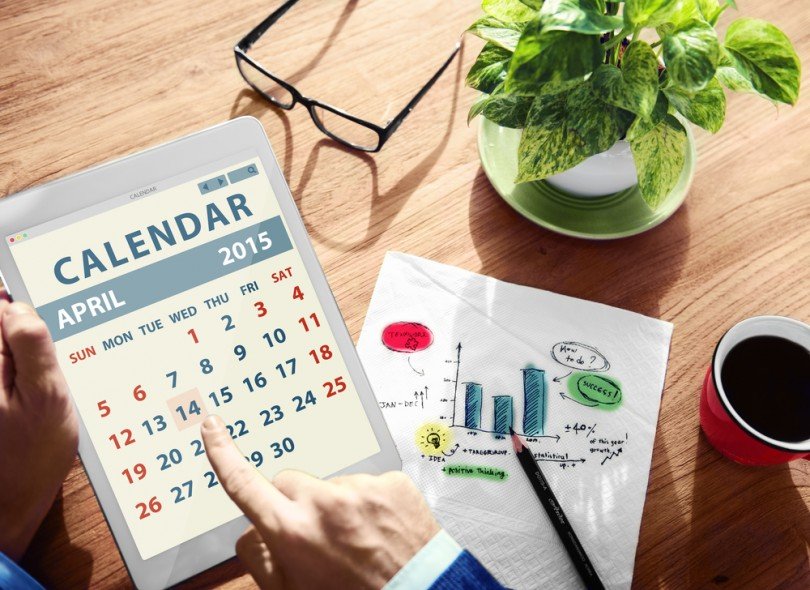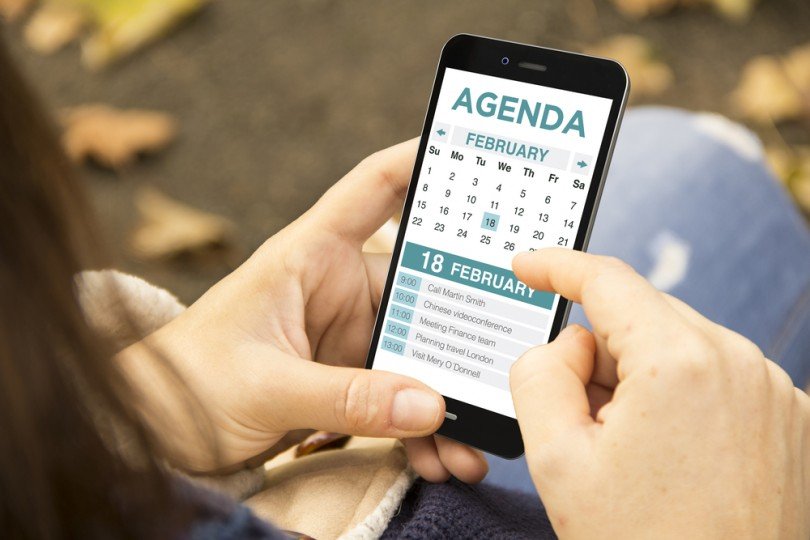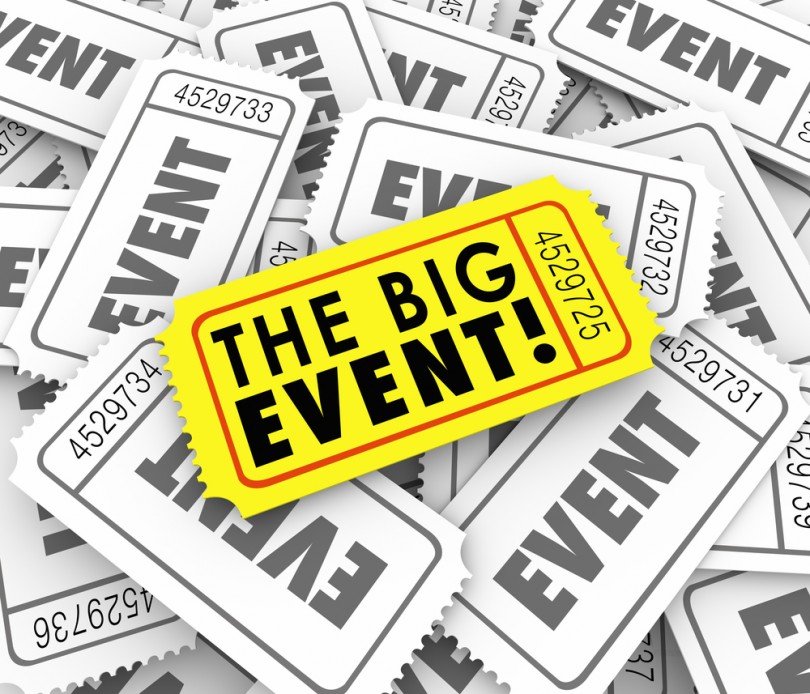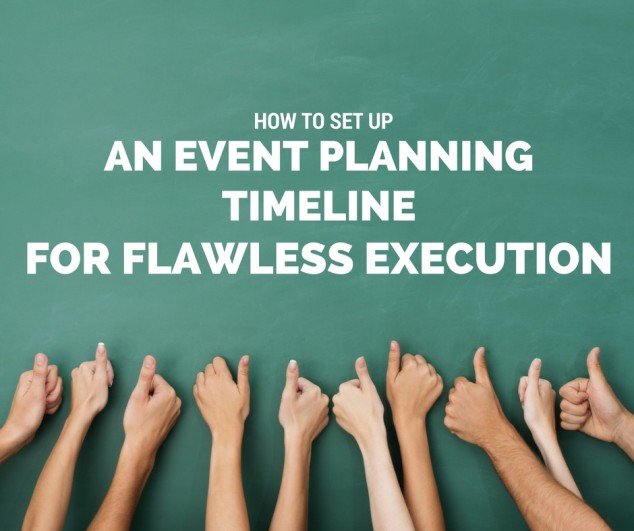When planning an event, how do you get organised? Do you create a list of all the tasks that need to be taken care of? Do you break everything down into individual to-do’s that you can handle one at a time? If you’re a smart event planner, you’ll create a timeline for event planning. Let us show you how we do it here, at Venueseeker.
An event planning timeline can help you to organise yourself and ensure that all of the important tasks are completed in the correct order. It’s a way to sort the tasks according to relevance, priority, and the advanced time with which you need to complete them. Organised event planners have their timeline laid out well in advance of the event, making it easier for them to check items off the list one by one.
We’ve come up with a simple, effective event planning timeline to help you know when to handle each of the important tasks. Read on to find out how you should be structuring your event planning…
Event Planning Timeline: 4-6 Months Before the Event
- Set the event date – Hammer out a date that works not only for you as a company, but which works for your attendees. That includes day of the month, day of the week and time of the event.
- Assemble the team – Who is going to be planning the event? You need both creative types and those who are good with the details. The more well-rounded the team, the better the chance of event success!
- Shop for venues – Start looking around for the right venue. This can take time, so invest at least a solid week of visiting two or three venues per day. Have a few members of the planning team visit each venue so they can get a clear idea of what each has to offer. Factor in catering, venue spaces, facilities, accessibility, and price. Once you’ve found the right venue, make the reservation.
- Prepare a budget – You’ll need to present your budget to your bosses for approval, so make sure to take every element into account: venue, food and drink, entertainment, publicity, marketing, equipment, and all the other small details that go into planning the event.
- Contact sponsors and partners – NOW is the time to reach out to companies, corporations, and organisations in search of sponsors and partners. It may take them a while to agree to participate, so you want to give them plenty of time to mull it over. We already covered this, check out our article about event sponsorship.
- Contact guests and speakers – You want to book any speakers or important guests well ahead of the event, especially if they are normally busy or fully-booked.
- Develop your Event Master Plan – This includes everything that will happen at the event: software to use, the guest speakers, the activities, etc.
Event Planning Timeline: 3-4 Months Before the Event

- Save the date – Giving your guests this much advanced notice is the best way to ensure that they can be free on the date and time of your event. This is especially true if you are targeting busy professionals.
- Liaise with the speakers and guests – It’s time to reach out to the speakers’ and guests’ representatives/agents/managers and hammer out their details: the bios, travel arrangements, accommodation, transportation to and from the venue etc. Always do this well in advance of your event.
- Deal with the financial tasks – Now it’s time to think about the financial administration of your event, including sponsorship arrangements, setting up online registration and payment, and figuring out the registration fees for the event. Do this well in advance so you have time to contact your bank/payment portal in case of any SNAFUs.
- PR Outreach – You definitely want to start doing this well in advance of the event date. Start reaching out early, and you can slowly build buzz that will make people more interested in your event. Contact local newspapers, magazines, radio stations, and TV channels, and start posting information of the event across your social media.
- Venue logistics – How are your guests going to enter and exit the venue? Where will most of the activities take place? Will you serve food and drink in the main venue, or will there be a side space for refreshments? It’s time to hammer out these important logistical details.
Event Planning Timeline: 1-2 Months Before the Event
- Finalize the schedule – By now, you’ll have finalised the details of your guests and speakers, so you know who is attending and what their schedules are like. It’s time to draft the Master Schedule, with a complete breakdown of all the entertainment, guests, speeches and presentations. Make sure your partners and sponsors know where they are included in the schedule.
- Finalize partners and sponsors – This is the time to finalise any partnership/sponsorship agreements. You don’t want to be hammering out details up until the last minute, so give your partners/sponsors a deadline to make their decision.
- Send out reminders – This should be a gentle reminder, something that can be done via email, or social media. You want them to remember to put your event on their calendar, but you don’t want to irritate them.
- Initiate press releases – Send out press releases of the event, but remember that most press releases take time to publish. Give the media outlets a week or so to publish your press release by sending them out in advance.
- Finalize venue details – Now is the time to make that final visit to the venue and do a walk-through of the event with the venue’s coordinator. Find out what equipment they can and can’t provide, how they plan to help you with the event, and all the other details. Share your event timetable so they can know exactly what their role to play will be.
- Open registration – Unless you want to make the event very exclusive, it’s a good idea to open registration well in advance. People who register in advance are far less likely to “flake” on the event!
- Designate staff roles – Make sure everyone knows what their part in the event will be and hand out all of the jobs–big and little.
- Review the budget – Give your budget one last review to ensure that you’ve done everything you needed to, all within the financial limitations established by your bosses.
- Ramp up social media activity – When you reach the 30-day mark, it’s time to go big with the social media. You want to build buzz to get people interested in your event. Smart social media campaigns are the way to do so.
Event Planning Timeline: 1 Week Before the Event

- Send the schedule to the venue – This is just a reminder to help the venue know how your event will be organised and it’s just in case they misplaced it from your previous meeting. With the detailed schedule, they’ll have an easier time keeping the event on track.
- Go big online – Now is the time to pull out all the stops on your online marketing and social media promotions. With one week to the big day, you need to make sure your guest list is full! Also, you can go with setting up a livestream platform in advance.
- Do a final check – Check with the venue, guest speakers, vendors, service providers, sponsors/partners, and anyone else who will be involved in the event. Make sure everyone is still on track for the big day.
- Send out a final reminder – This should be one last email to remind guests of the event they will be attending in just a few short days.
- Coordinate with the venue – You want to start working on the venue logistics, as well as get a list of all the staff that will be participating in the event.
- Brief the hosting team – Everyone of your employees that will play a part in the event needs to be briefed on their roles ahead of time. Have a team meeting a week before the event to make sure everyone knows what they will be doing.
- Check registration – This is the time to go over the registration list and see who is attending. Make sure everyone has paid, signed up, and provided the proper personal information/details for the event.
- Ensure media attendance – Confirm that you will have media in attendance at the event.
Event Planning Timeline: The Big Day
- Check sponsor/partner materials – Make sure your partners and sponsors are getting the attention you promised them. If they’re happy, they’re more likely to want to participate in future events.
- Have copies of all of your plans – Photocopy every important planning document so you have two or three copies, just in case. This includes guest lists, seating charts, VIP lists, master schedules, etc.

Event Planning Timeline: Follow Up
The work doesn’t stop when the event is over!
- Send out thank-you notes – Not just to the attendees, but to the guests, speakers, partners, sponsors, and vendors. It’s a professional touch that will be well-received.
- Post the event survey – This will help you get feedback and show you where you excelled/failed in your event, thus helping you do better the next time around.
- Check publicity – Find out how far and wide news of your event spread.
- Evaluate the financial status – Did your event put you in the black, break even, or lose money? The financial status of your event isn’t the only metric to use – reach, buzz, and positive brand recognition are all important as well.
Creating a timeline for event planning is the key to helping you stay on track with all the tasks that need doing. It keeps you working toward the final goal, and will help you smoothly execute the event!
If you want help to plan your top-quality event, let Ultimate Experience help. With our VenueSeeker partners, we’ll deliver a unique event at one of the best venues London has to offer. We’re more than capable of helping you plan and execute an event that will draw the right kind of attention to your company and brand.
What did you think of this timeline? Are we missing anything? Share your thoughts by leaving a comment below.




